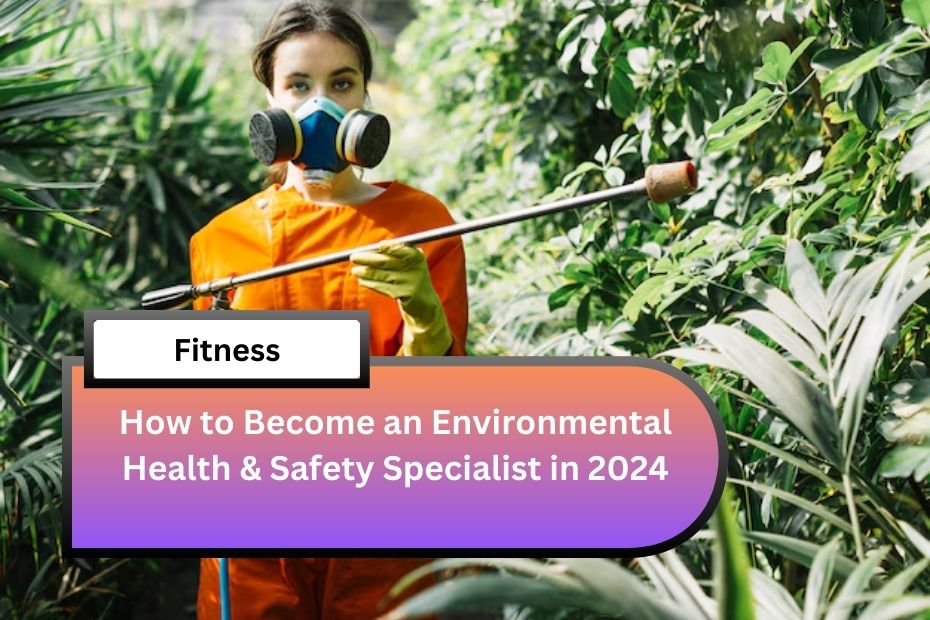Environmental Health & Safety (EHS) specialists help keep workplaces safe, protect the environment, and ensure companies follow safety rules. If you’re interested in a career where you can make a difference in people’s lives and the planet’s health, this guide will help you understand what it takes to become an EHS specialist in 2024.
Who is an Environmental Health & Safety Specialist?
An EHS specialist is someone who works to make workplaces safer and ensure businesses protect the environment. Their job involves following government safety rules, finding potential hazards, and training employees.
Key Responsibilities
- Inspect workplaces to identify risks.
- Create and enforce safety programs.
- Handle hazardous materials and waste.
- Ensure companies follow safety and environmental laws.
- Teach employees about safety procedures.
Why Choose a Career in EHS?
1. High Demand
More companies are focusing on workplace safety and protecting the environment, so there’s a growing need for EHS specialists.
2. Competitive Pay
EHS specialists earn good salaries, with chances to grow in the role.
3. Meaningful Work
This career allows you to make workplaces safer and help reduce environmental harm.
Steps to Become an EHS Specialist in 2024
Get a Bachelor’s Degree
You’ll need a college degree in a related field. Popular options include:
- Occupational Health and Safety
- Environmental Science
- Industrial Hygiene
- Civil, Chemical, or Environmental Engineering
Focus on courses about safety regulations, environmental laws, and risk management.
Gain Work Experience
Practical experience is essential. Start with internships or entry-level jobs, such as:
- Safety Coordinator
- Environmental Technician
This will help you learn safety rules, build skills, and meet professionals in the field.
Earn Certifications
Certifications improve your chances of getting a job. Some top options in 2024 are:
- Certified Safety Professional (CSP): Advanced knowledge of safety.
- Certified Industrial Hygienist (CIH): Focus on workplace health.
- Certified Hazardous Materials Manager (CHMM): For handling dangerous substances.
Understand Industry Rules
EHS specialists must know key regulations, including:
- OSHA (Occupational Safety and Health Administration) standards.
- EPA (Environmental Protection Agency) guidelines.
- ISO 45001 (International Safety Standards).
Develop Soft Skills
Successful EHS specialists also need:
- Communication Skills: To explain safety rules clearly.
- Problem-Solving: To handle safety issues effectively.
- Attention to Detail: To ensure compliance with strict laws.
Stay Updated
The safety field changes quickly. Stay informed by:
- Joining groups like the American Society of Safety Professionals (ASSP).
- Attending workshops or conferences.
- Reading safety news and updates.
Consider Advanced Education
A master’s degree in areas like Environmental Management or Occupational Safety can lead to higher-level roles.
Career Paths for EHS Specialists
As an EHS specialist, you can explore different roles:
- EHS Manager: Lead safety programs for an organization.
- Environmental Scientist: Focus on protecting natural resources.
- Industrial Hygienist: Deal with workplace health hazards.
- Compliance Officer: Make sure companies follow safety rules.
Job Outlook for 2024
The demand for EHS specialists is expected to grow in industries such as:
- Manufacturing
- Construction
- Energy and utilities
- Healthcare
In 2023, the average salary for EHS specialists was about $78,000, and the demand is only increasing.
Tips for Success in EHS
- Network Actively: Connect with professionals on LinkedIn and attend industry events.
- Learn Multidisciplinary Skills: Knowledge in fields like chemistry or data analysis is a big advantage.
- Be Tech-Savvy: Learn to use EHS software tools.
- Adapt to Change: Stay open to new safety technologies and rules.
Conclusion
Becoming an EHS specialist in 2024 is a rewarding career choice for those passionate about safety and environmental health. By earning a degree, gaining experience, and staying updated with industry trends, you can build a career that positively impacts both people and the planet. With increasing demand and excellent growth opportunities, now is the perfect time to step into this field.
FAQ’s
1. What does an Environmental Health & Safety Specialist do?
An EHS Specialist ensures workplaces are safe and environmentally friendly. They conduct safety inspections, train employees, and ensure compliance with local, state, and federal safety laws.
2. What qualifications do I need to become an EHS Specialist?
You’ll typically need a bachelor’s degree in fields like Environmental Science, Occupational Health, or Engineering. Certifications such as CSP (Certified Safety Professional) or OSHA training can improve your job prospects.
3. What industries hire EHS Specialists?
EHS Specialists are in demand in industries like manufacturing, construction, healthcare, energy, and government, where workplace safety and environmental compliance are critical.

